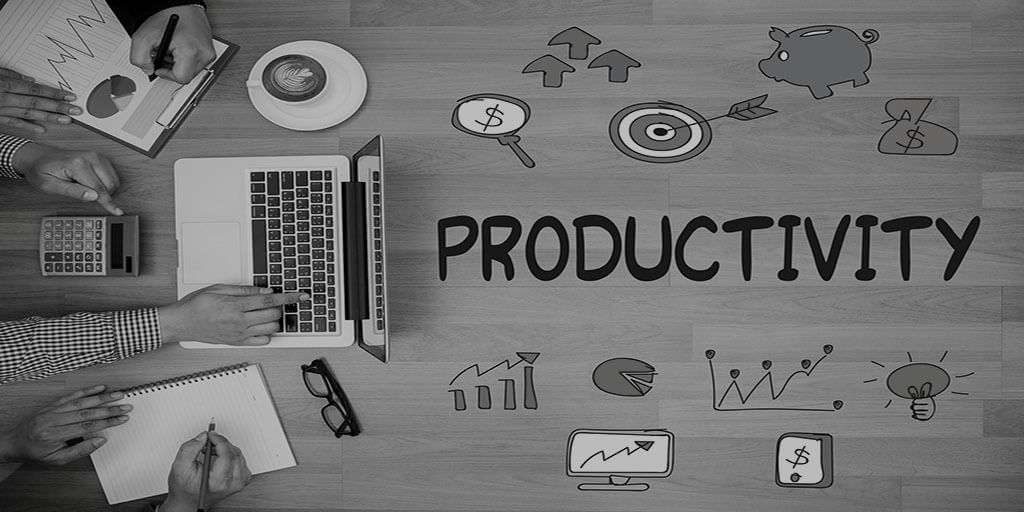The top 10 Ways Successful Business People Stay Productive
29 August 2017

Gordon Gekko’s proclamation in Wall Street that “Lunch is for Wimps” was designed to convince movie-goers that successful businesspeople were a breed apart. You know, those people who say they get up, run 10 miles, down a kale and avocado shake and deal with 1,800 emails before the rest of us have even hit snooze for the first time. But, a good few decades later, it turns out we’ve learned business success doesn’t have to be extreme or dramatic at all. To stay productive, you just need some good time and people management skills. We asked our RL360 Executive Team for some tips on maintaining productivity and distilled them down to a top 10:

1) Regular meetings with key co-workers: Have a regular weekly meeting with your key staff which lasts for no more than 1 hour and covers all the items you have a common work interest in. Businesses are people so ensure you make time for them and that you listen. Always be approachable and accept that mistakes are how we learn (but let’s not repeat them).

2) Linked closely to point 1 is delegation: This is essential. You must allow your direct reports to demonstrate their capability by giving them relevant and challenging tasks, as well as the basic day to day stuff. Brilliant as you may be, time is precious and you need to be ready to react to events. Focus on the big stuff and then dive into the detail only when needed as others should be running with the detail. Design and build a strong team of people you trust.

3) Exercise: You don’t need to run 10 miles before breakfast (unless you really want to) but exercise is a proven method of clearing, and therefore concentrating, the mind. Try to get 30 minutes of exercise 2 or 3 days per week, preferably in the middle of the day. This burns off any excess adrenaline and clears your thought pattern.

4) Get an airport lounge card: If you travel once a fortnight or more this will pay for itself and you will wonder how you ever coped without one. Don’t underestimate the need to eliminate unnecessary stress from your day.

5) Clear desk policy: It’s not just about security and confidentiality, it’s about de-cluttering your workspace so you can concentrate on the task at hand. Get a decent shredder and dispose of any unneeded papers. Ask yourself, do you need it anymore? Do you have an electronic copy somewhere for future reference? Mess means stress.

6) Read fast: Learn to read quickly and spot the important parts of the documents you are presented with. If working on a document collaboratively then revision mark it so that you only need to focus on the changes. Save reading documents for long haul flights.

7) Lists are key: Whether you’re using pen and paper or a task management app, prioritise your work on a regular basis. Maintain a to do list and keep it with you whilst at work at least. Never underestimate the value of having your tasks set out in front of you as a constant reminder and the satisfaction you will feel as you cross them off as you go.

8) Preparation is king: Don’t switch off for the day until you have planned for tomorrow. Any manual for success will say high fliers prepare the following day’s clothes and meals and co-ordinate their tasks (both domestic and work-related) the night before. When it comes to work, always plan and note key points for the next day before you leave the office.

9) Balance: It’s easier said than done but life isn’t supposed to be one long trial – try to enjoy what you do. Go with the flow as far as is practical and be confident that you can tackle anything that comes your way. Change is a constant, so embrace it. Take everything just seriously enough but ensure you remember the value of your life outside of work.

10) Emails: This is the big one. Most busy people get a lot of emails every day. Organising your email account into a relevant folder structure helps to store the ones you want to keep in a way which makes them easier to find later. Make sure you read every email you receive, however briefly, and then take one of the following actions:
a. Delete it
b. Delegate it to another member of my team
c. Store it in the relevant folder if it requires no action
d. Move it to specific folder called Action
e. Action it there and then